Debts ordered by a common court include unpaid fines, compensation to victims, probation and other court costs. The Office of the Legislative Analyst this week released a report titled Restructuring the Court-Ordered Debt Collection Process, detailing current court-ordered debt collection processes – both overdue and overdue. It describes the different models for implementing collection programs ordered by the courts, with the court and the county performing some or all of the collection function within a jurisdiction. If you owe money to a California court and don`t pay it, it becomes a court-ordered debt. The courts can send us your request for recovery. We may withdraw money from your paycheck or bank account to pay off your debts. You don`t pay the first month. Another $200 will be added to your debt. Total amount due after one month: $1,700 ($1,500 + $200) of debt may be owed to a court, county, state, or victim.
If they remain unpaid, this debt can increase with annual interest. In addition, counties can remit debts to a debt collection agency. Unfortunately, this means that non-payment can affect your credit and ultimately affect your chances of permanent accommodation and employment. In one year, the amount owed increased from $1,500 to $2,371.84, simply due to non-payment. Therefore, you need to know as much as you can about the court-ordered debt and work with your lawyer, county, and probation officer to settle the money owed. Unfortunately, most participants in the criminal justice system come with fines and fees. This means that you probably owe money. Guilt (money owed) refers to certain crimes and may include administrative costs, court penalties, and refunds (payment by the court or aggrieved party as punishment for the crime committed). In addition, you may be liable for money for a violation or minor offense from years ago, para. B example a traffic penalty. If overlooked, debt can increase over time and ultimately hinder your ability to get housing, a driver`s license, and a job.
If you`ve been convicted of a crime, you probably owe legal fees or owe them at some point. But even if you`ve never been convicted of anything, the court can still charge you other fees, such as .B. Prison reservation fees, fees for public defenders, and fees related to minor offenses called violations. It is important that you know and understand all the court-ordered debts you owe, as these debts can prevent you from moving forward with your life in different ways. The key: Keep your financial situation under control, even if you`re starting from scratch. Keep track of all the money you have, what you owe and who you owe. Most importantly, you are honest with yourself and others about your financial situation. If you are proactive, the courts are more likely to work with you to create payment plans after release. You owe $1,000 for a specific crime (fine) You owe $500 for legal costs (fees) Total amount upon conviction: $1,500 ($1,000 + $500) The report also outlines the roles of other parties, including the DMV, the Franchise Tax Board, and other external providers who may take responsibility for debts in default, for example, after an account has reached a certain age. LAO concludes that the current structure for the collection of court-ordered debts is ineffective and recommends that primary responsibility for collection be transferred to the trial courts.
Other recommendations include the implementation of a court-based incentive model for recoveries and reporting on new KPIs. Court-ordered debts are money you may owe because you`ve been involved in the criminal justice system in the past – whether you`ve been convicted, acquitted, your charges have been dismissed, or you`ve never been arrested. You may owe this money to the court itself, the county or other government agency, a victim of your crime, or even a collection agency. After one year, you may be charged interest (although courts may consider a « good reason » not to charge that interest). Total amount due after one year: $2,371.84 ($195.84 + $2,176) If you cannot pay on release, you may be eligible to establish a payment plan or delay your payments. It depends on whether you intentionally ignored your payment. Therefore, it is important that you immediately become aware of the debt you owe. You don`t pay after two months. The District Court will remit your credit to the collections. Total amount due after two months: $2,176 ($476 + $1,700) There are three types of court-ordered debts: 1) fines related to a crime, 2) administrative court fees, and 3) repayment.
Western Union is the only payment option to pay your court-ordered debt (COD) to the California Franchise Tax Board (FTB) in order to expedite the release of your driver`s license. If you have other commitments ordered by the referring court, they must also be paid. To expedite the issuance of your licence: The CCC is contacting counties, collection program managers and other interested parties for feedback. We would like to hear from counties so that we can develop an appropriate advocacy strategy. Please email your comments and ideas to Elizabeth Howard Espinosa as soon as possible. You can request a payment plan or delay your bill. Log in online to My PAYMENT on Delivery Account (www.ftb.ca.gov/online/Court_Ordered_Debt/index.asp) and go to « Pay Now ». Prepare the following information: After discussing the current reporting requirements of the collection program and performance measures, the report describes its key findings, focusing on a number of perceived deficiencies. The deficiencies identified by LAO can be divided into three main areas: 1) lack of tax incentives for profitable investigations; (2) challenges related to the overall evaluation of collection programs; and (3) the governance structure and division of responsibilities are ineffective and undermine effective oversight. This service is subject to a fee. Have the following information handy: Fortunately, there are laws to help you if you can`t make a payment right away. .

Commentaires récents